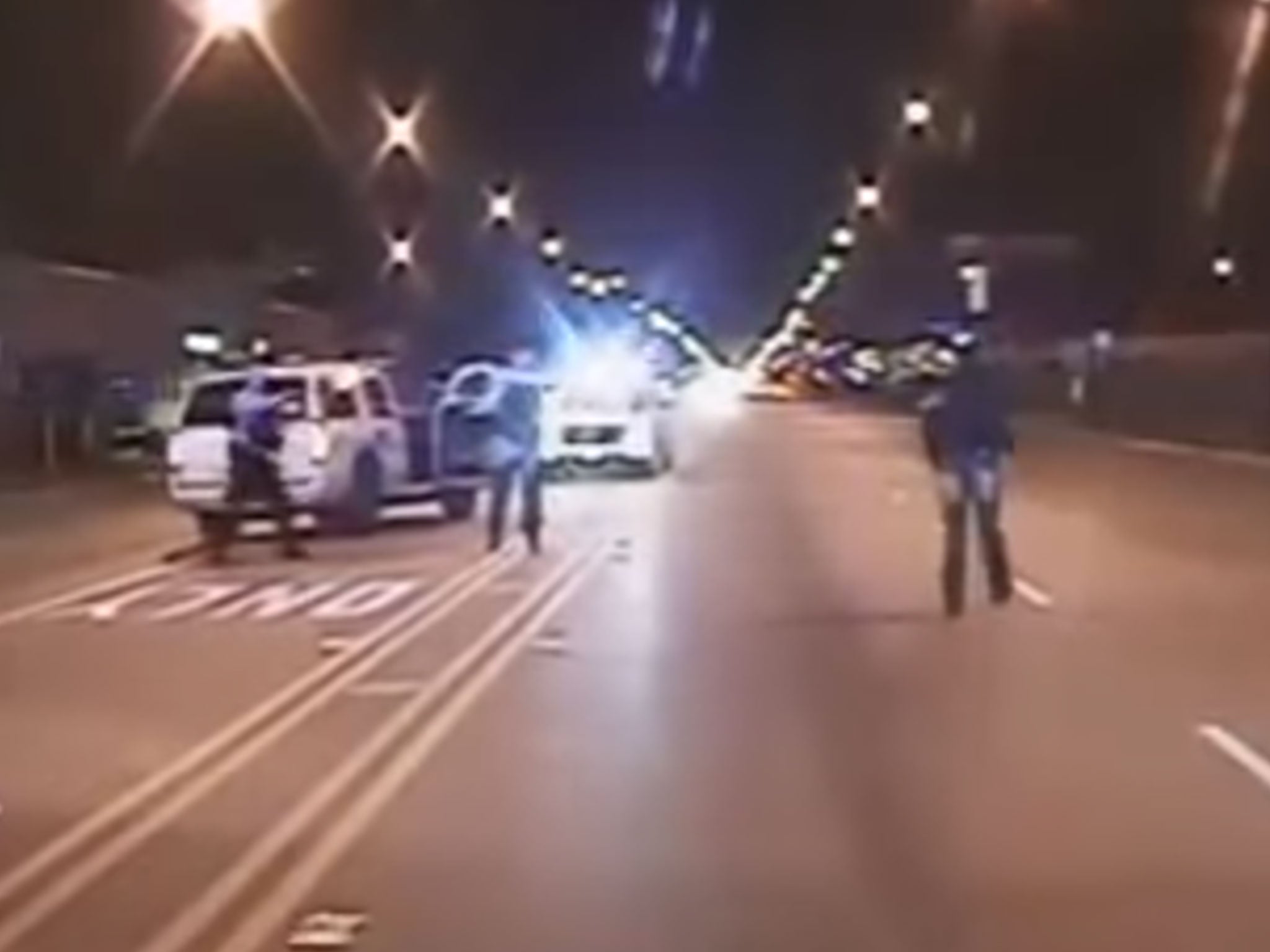Laquan McDonald shooting: Seven Chicago police officers face the sack over black teenager's death
The recommendation comes from one of the top police officers in Chicago

Your support helps us to tell the story
From reproductive rights to climate change to Big Tech, The Independent is on the ground when the story is developing. Whether it's investigating the financials of Elon Musk's pro-Trump PAC or producing our latest documentary, 'The A Word', which shines a light on the American women fighting for reproductive rights, we know how important it is to parse out the facts from the messaging.
At such a critical moment in US history, we need reporters on the ground. Your donation allows us to keep sending journalists to speak to both sides of the story.
The Independent is trusted by Americans across the entire political spectrum. And unlike many other quality news outlets, we choose not to lock Americans out of our reporting and analysis with paywalls. We believe quality journalism should be available to everyone, paid for by those who can afford it.
Your support makes all the difference.The most senior police officer in Chicago has recommended that seven of his colleagues are fired for “lying” after they shot black teenager Laquan McDonald almost two years ago.
Police superintendent, Eddie Johnson, said that seven officers had made false statements in the aftermath of the October 2014 shooting and should be dismissed, and he has stripped them of their police powers.
None of accused officers have been named, but most of them were at the scene of the shooting. Only one officer, Jason Van Dyke, has been charged with first-degree murder. He has pleaded not guilty.
The death of the 17-year-old was caught on camera and footage was released to the public a year after the killing, contradicting the officers’ version of events.
The superintendent’s recommendation follows a report from inspector general Joseph Ferguson, who said that 10 police officers should be fired. Mr Johnson, however, argued there was insufficient evidence against one of the officers to terminate employment, as reported by the Chicago Tribune.
If any seven officers are fired, it would be a big win for campaigners who have accused the Independent Review Authority, the committee which oversees police shootings, of routinely clearing officers despite evidence of misconduct.
One high-ranking officer caught up in the scandal, Anthony Wojcik, retired in May.
David McNaughton, the deputy chief who ruled that officer Van Dyke’s shooting of McDonald was in line with departmental policy, retired this week after reportedly learning that Mr Ferguson had released his report.
“It is my belief that through these challenges we can take the lessons learned to become a better Department and in turn, give you additional resources to do your jobs effectively,” superintendant Johnson wrote.
Mr Johnson does not have the last word. His ruling could be overturned by the Chicago Police Board, and officers can challenge the final decision in court.
Mr Van Dyke claimed that he fired his gun in self-defense as McDonald lunged towards him, and after McDonald had been shot to the ground, he tried to rise from the pavement, pointing a knife, and was fired at again. Mr Van Dyke's claims were backed up by colleagues at the scene.
The video showed that McDonald, who was carrying a knife, was walking away from police when he was shot 16 times in less than half a minute.
More than 12 months later, the Chicago police accountability task force found that the teenager had posed “no immediate threat to anyone”.
Mayor Rahm Emanuel, who came under fire for allegedly trying to keep the police dash cam footage secret for a year, said on Wednesday that he will “respect the decision” of the superintendent but will not get involved.
The shooting prompted national outrage and was a catalyst for the Black Lives Matter movement, which aimed to shine a light on the potentially unlawful and disproportionate number of fatal police shootings against black people.
The movement prompted a US Department of Justice investigation, looking into whether Chicago police and other agencies across the country systemically violated citizens’ rights.
Join our commenting forum
Join thought-provoking conversations, follow other Independent readers and see their replies
Comments